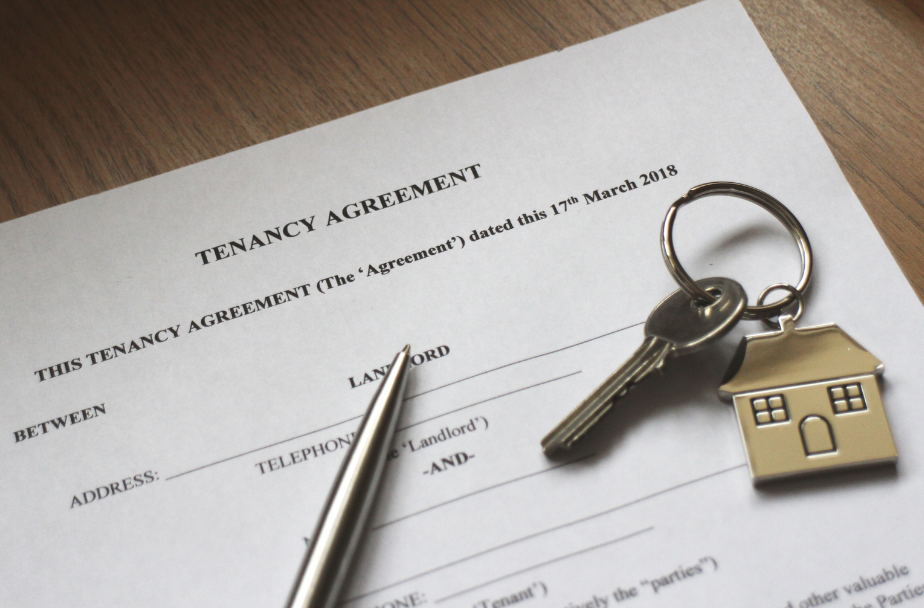Mistakes are a part of life. They also are a part of owning and growing a business. But mistakes in business can cost you money, and no one in business likes losing money.
Thankfully, we can learn from our mistakes and get better as we gain experience. One of the first steps in that process is identifying where we have made mistakes. This allows us to avoid those pitfalls in the future and helps us anticipate other areas of potential slip-ups.
The below list outlines a handful of mistakes property managers and landlords tend to make. The list is not comprehensive, nor is it meant to be autobiographical. But, after thirty-five years in this business, I've seen many of these mistakes play out. And maybe I've made a few of them myself.
Not Properly Screening Tenants
This is where it all begins and where many potential tenant-related problems can be avoided before they even start. First and foremost, with the modern world's ease, there is no reason not to run a credit check on potential tenants. The internet provides many low-cost solutions for even single-property landlords to run someone's credit properly. In fact, potential tenants realize these checks will be part of their application process and that it is standard practice to have to pay the associated costs. So, make sure you are running credit checks on your applicants. You will have no one to blame but yourself if you do not and things go badly.
Not Performing Regular Inspections
 Performing regular property inspections is paramount to protecting the investment you or the owner(s) you represent have put into a property. Visiting a property a handful of times per year may feel like overkill or an intrusion on your tenants' homes. Still, it is, without question, the best way to stay on top of maintenance issues and to make sure your tenants are living up to the stipulations of their lease. So, do not be lazy and do not be overly trusting. Do the inspections.
Performing regular property inspections is paramount to protecting the investment you or the owner(s) you represent have put into a property. Visiting a property a handful of times per year may feel like overkill or an intrusion on your tenants' homes. Still, it is, without question, the best way to stay on top of maintenance issues and to make sure your tenants are living up to the stipulations of their lease. So, do not be lazy and do not be overly trusting. Do the inspections.
Not Preparing for Vacancies
The recent market has seen vacancies at or near all-time lows, but that does not mean you will not have a break between tenants at some point. Remembering that owning and managing rental properties is a business is extremely important, and every business needs to have a plan for when sunny days cloud over and income slows or halts altogether. It is a wise business decision and standard practice to keep a savings account that can cover at least three months of expenses associated with your property.
Not Having Written, Signed, and Detailed Leases
It seems like the most obvious thing in the world, but, believe it or not, some landlords still operate with handshake agreements. So, again, I cannot stress enough – DO. NOT. DO. THIS. Even if you are renting the home next door to yours to your best friend in the world, you need to have a written agreement outlining the monthly rent and other stipulations of tenancy. This will protect both you and your tenant should anything go awry while they are occupying your property.
Not Knowing Your Market
Comps are king. In the real estate world, whether it's listing agents, buying agents, landlords, property management companies, apartment complexes, mortgage brokers, or anyone else, one of the first words out of most people's mouths is, "let me see the comps." This is especially true when you have rental properties. If you have a two-bedroom townhouse near a college campus, you will want to know what two-bedroom apartments in the same area are renting for. If you have a property two blocks from the beach, you won't price it to a single-family rental in a suburban neighborhood. Know your market and the comparable properties, and this will help you correctly price your property.
when you have rental properties. If you have a two-bedroom townhouse near a college campus, you will want to know what two-bedroom apartments in the same area are renting for. If you have a property two blocks from the beach, you won't price it to a single-family rental in a suburban neighborhood. Know your market and the comparable properties, and this will help you correctly price your property.
Not Knowing Local Housing Regulations
There are a LOT of laws and regulations regarding housing. Going into the world of property management without knowing the landscape of rules, regulations, and whatnot would be like taking the SATs without ever having finished kindergarten and expecting a perfect score. Again, knowing fair housing laws and the rules and regulations regarding renting your property is made so easy by the modern world. Take a bit of time and do some online reading about these matters and familiarize yourself. You don't need to complete law school to understand the landscape of property management, but you do want to know what laws and regulations dictate matters in the industry.
As humans and as professionals, we have the ability to learn. Putting a bit of time and work and gleaning from the experiences of others can help you avoid the potential pitfalls associated with property management.
As a leading property management firm in the Cape Fear region, Sweyer Property Management recommends that property owners strongly consider working with a trusted and experienced property management company. Additionally, we want to make sure property owners and investors understand the relationship they are entering into when choosing to work with a property management firm.
If you have investment properties and do not use a professional management company, we hope you consider doing so. The experts at Sweyer Property Management will be happy to provide you with a free rental analysis or, if you prefer, give us a call at 910-239-1338.
Sweyer Property Management is a full-service professional property management company specializing in all aspects of rental management. If you're an investor or property owner looking to learn more about our services and what a professional property manager can do for you, reach out to us today at 910.256.3031 or via our website. Sweyer Property Management has exhibited continuous growth throughout the Wilmington, Leland, and Hampstead areas while maintaining an excellent Google+ rating for customer service.



